#agricultural workers
Photo

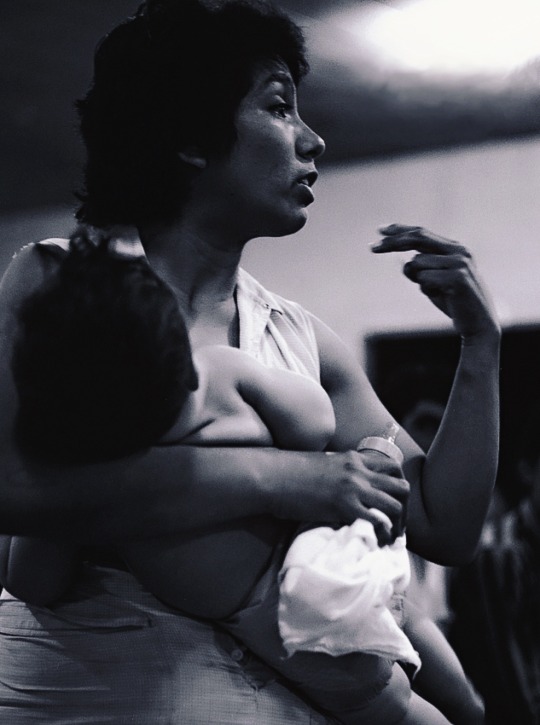
Earthen Embrace: A Colima Mother Figurine and the Chicana Voice 's black diamond
14 notes
·
View notes
Text
vimeo
South Asian Dispatches: Episode 1 – Farmworkers’ Strike in Bangladesh
The Communications Collective of South Asia, with support from the Youth Media Collective of MONLAR, is releasing the first edition of La Via Campesina’s South Asian Dispatches. These consist of a series of interviews with leaders from various peasant organizations in South Asia, and through them, we bring you the latest updates about the different peasant struggles in the region.
Episode 1 focuses on the ongoing farmworkers' strike in Bangladesh, organized by the Bangladesh Agricultural Farm Labour Federation since July 21, 2023.
The struggle led by farmworkers for improved wages and working conditions has compelled the government to establish a committee to study the matter and provide recommendations.
Listen to Golam Sorowar, the General Secretary of BAFLF, as he provides further insight into the struggle.
26 notes
·
View notes
Text
"The category of race was also critical to the second pillar of the CFU’s [Canadian Farmworkers Union] organizing mission: ridding the industry of contractors. Contractors would supply the labour force for the farmers and, in many cases, they held as much power as the farmers. The contractor was responsible for hiring a workforce, maintaining discipline, and making payments. The farmer would not pay the workers directly; instead, the farmer would pay the contractor who, in many cases, would retain the money until the end of the season.
In many instances, the contractor was also responsible for transporting workers between the field and their homes. Since labour contractors were trying to maximize profits, the vehicles they used to transport workers predictably violated many road safety standards. As Chouhan remembers, his first contractor: “came to pick me up in an Econoline van which had no seats in it, there were people sitting on the floor which was quite a shock [laughs]. No seat belts, no nothing.” Many workers have been killed due to accidents in these unsafe vehicles, and, as recently as 7 March 2007, three farmworkers died in a rollover accident while riding in an overcrowded vehicle between Abbotsford and Chilliwack.
Often, contractors were from the same social and ethnic circles as the labourers whom they employed. Charan Gill identified a “colonial mentality” in comments made by farmworkers. Since the contractors who provided them with work shared familial and cultural ties with them, some of which could be traced back to Punjab, many farmworkers did not want to stand up to the contractors. Fears of losing jobs and housing were very real, and such losses could jeopardize their immigration status. Contractors who came from the same community as the workers could manipulate the latter into believing they were on their side, and, because of this, Gill notes: “in spite of our efforts, individual interests [of workers] sometimes invalidated collective interests [of their class]” because some of those workers aspired to be contractors.
Simply getting safety information to farmworkers was also difficult. Since many of the workers could not read or write in English, and some were illiterate in their own languages, they were often dependent on information from the farmer and the contractor. Contractors could intentionally mislead, omit certain information, or outright lie to their workers about their legal rights. This delayed organizing efforts. To counter this information block, organizers would try to go to local temples on the weekends, where many workers went to pray. However, the labour contractors also had control over the temple executives, so organizers were often refused the right to speak. Frustrated, the organizers developed a two-part strategy. First, they would have “kitchen meetings” in which the organizer would contact one worker for a meeting in their home, and that worker would contact neighbours and friends, so “that way [they would] not [be] afraid to be seen by a labour contractor or in the temple or in a public place.” Second, because many families used the temples for social events, the organizers would ask family members to invite the CFU and thus circumvent the temple executives as organizers of social events had the “absolute right to invite anyone they want[ed].”
These strategies helped the CFU reach out to potential members and to provide valuable information regarding their legal rights. Unfortunately, despite the efforts of the CFU, contractors are still a part of the industry to this day, and anyone driving through the agricultural areas of British Columbia’s Lower Mainland can witness the painted-over shuttle buses that daily transport farmworkers from home to field."
- Nicholas Fast, ““WE WERE A SOCIAL MOVEMENT AS WELL”: The Canadian Farmworkers Union in British Columbia, 1979–1983,” BC Studies. no. 217, Spring 2023. p. 44-45.
#canadian farmworkers union#participatory democracy#union organizing#farm workers#agricultural workers#indian immigration to canada#immigrant workers#racialized workers#farming in canada#working class struggle#academic quote#strike#union politics#labour contracting#exploitation#reading 2024
8 notes
·
View notes
Text
Berry-picking season is underway, but unusually dry and hot weather across the Northwest Territories has raised questions about how good the harvest will be.
While many regions have bounties of berries to pick, abnormal conditions in other parts of the territory have left foragers and wildlife with hardly anything.
Cathy Pope, a berry picker from Norman Wells, N.W.T., said there has been an abundance of blueberries this year, and that she's "never seen it like this."
Despite the ample availability of fruit, thick wildfire smoke — some of the worst in the country, at times — has made it hard for Pope to go out and pick.
"With the smoke it's pretty hard. You have to find a good day, evening before the smoke comes in, and today it's very bad," she said in a phone interview. [...]
Continue Reading.
Tagging: @politicsofcanada
28 notes
·
View notes
Photo
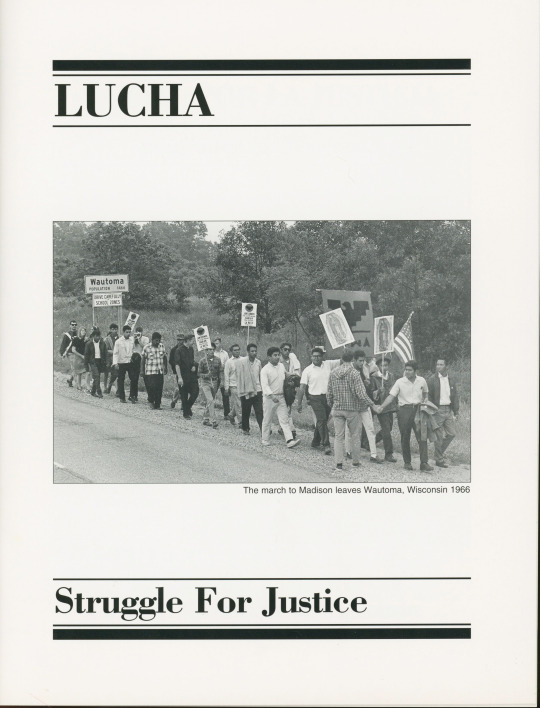
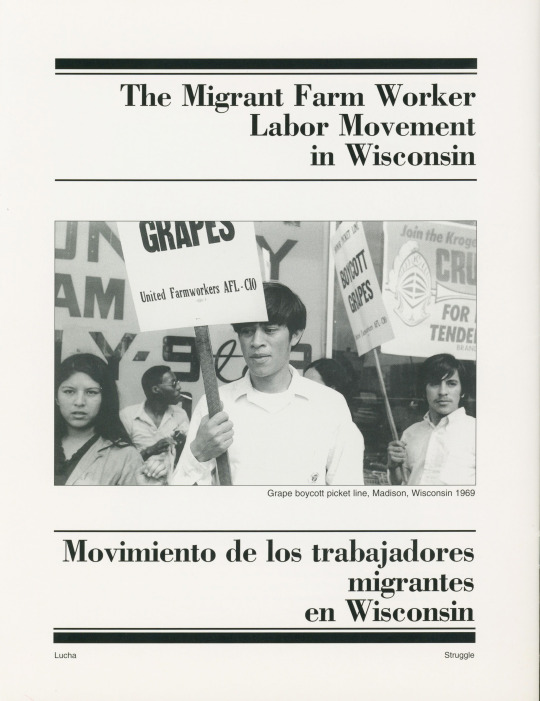
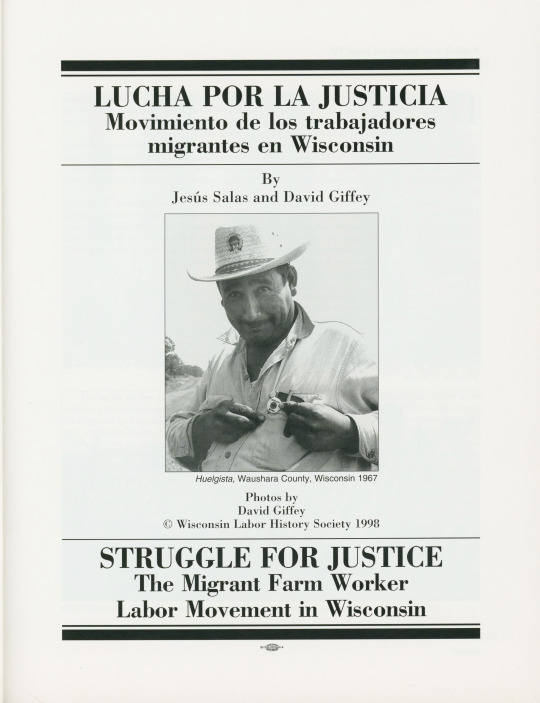
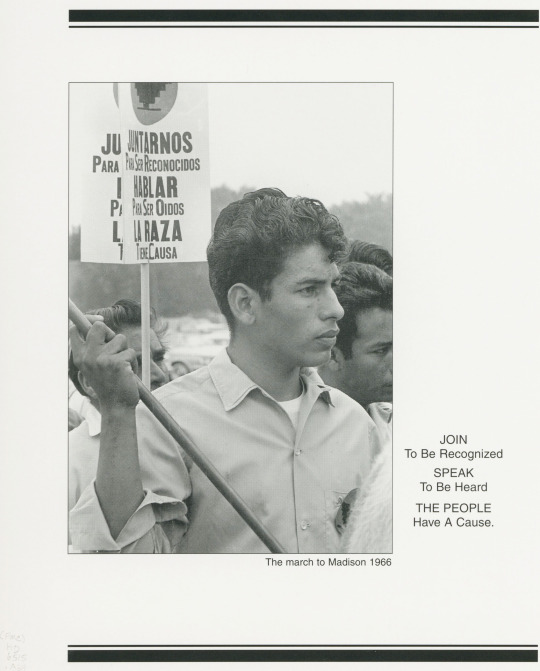
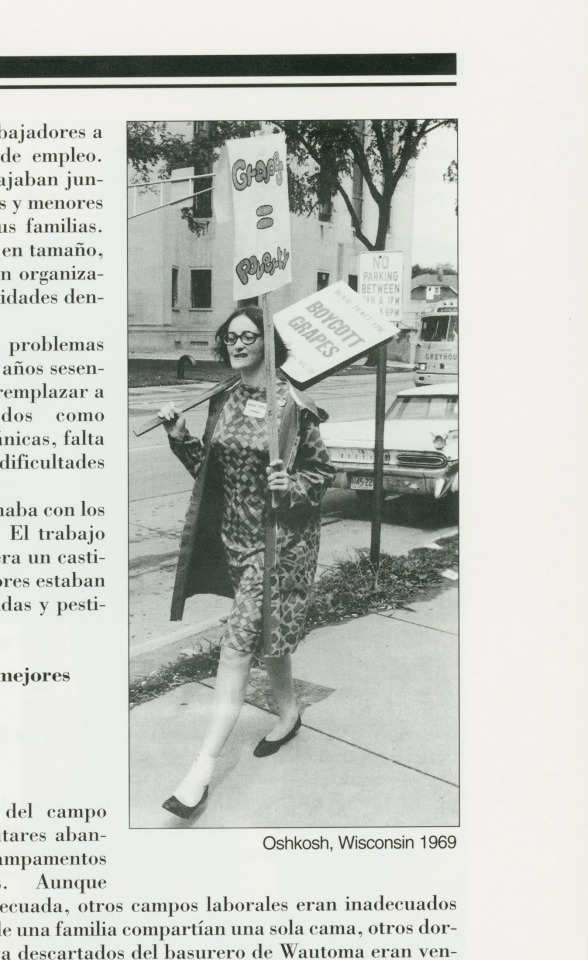



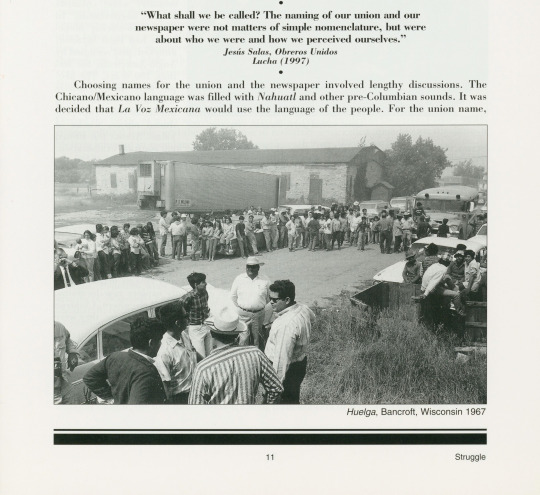
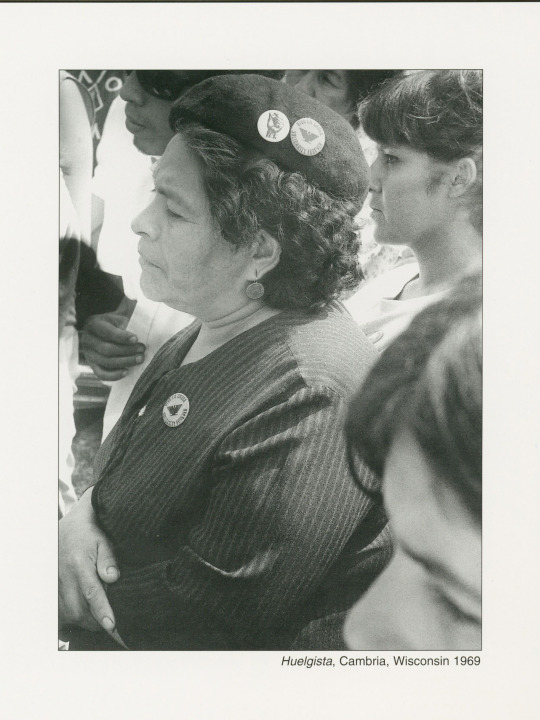
Labor Day 2022
Today is Labor Day, a holiday in celebration of the workers of the United States and the struggle of the Labor Movement for the rights and freedoms workers have today. It is a good day to remember that for many the fight is not over, and that we should support our fellow workers whenever possible.
In that light, we’re sharing Lucha por la Justicia / Struggle for Justice published by the Wisconsin Labor History Society in 1998. The book is about the migrant farm worker labor movement in Wisconsin, and in particular strikes and boycotts of the mid-1960s. Agricultural workers, and especially those who are migrant workers, are one of the least protected groups of workers in the country. in 1966, migrant workers in Wisconsin marched 80 miles from Wautoma to Madison to present their demands to the state government. Among their demands were improved housing, a $1.25 minimum hourly wage, and accident and hospitalization insurance. Agricultural workers in Wisconsin also participated in and raised awareness for the Delano Grape Strike of the late 1960s.
Just last week, members of United Farm Workers union in California marched 335 miles from Delano to Sacramento in support of a bill that would make it easier for agricultural workers in the state to vote in union elections. Currently they can only vote in person in union elections, which creates opportunities for retaliation and intimidation by farm owners against those who vote to unionize and prevents migrant workers from voting if they are not in the state at the time of the election. Renowned internet labor supporter and cat Jorts supported their march by marching his furry little paws around his place of employment (which is unionized, fyi). Unions are one of the best ways for workers to make sure that they are not exploited and allow them to collectively bargain with their bosses for fair wages and treatment.
So, as we enjoy our long weekend and most likely grill some burgers and hotdogs and enjoy some sweet corn from a roadside stand, let’s not forget the workers who literally make it possible for us to have food on our tables (or any workers!).
-- Alice, Special Collections Department Manager
#Labor Day#unions#strikes#huelga#Delano Grape Strike#United Farm Workers#Wisconsin Labor History Society#farm workers#agricultural workers#Jorts the Cat#Jorts and Jean#Jorts#holidays#Alice
79 notes
·
View notes
Text
Poor women could also be used as an outlet for homosexuals. Lady Saville was said to have converted her son, Sir George, from homosexuality in 1750 by taking him away from a male lover, a waiter at Mount's coffee house, into the country to have sex with servant girls and agricultural workers. Henry Harris reported the cure: 'Lady Saville has taken her younger twig of Sodom into the country, and by way of weaning him from that unnatural vice, takes great pains to cocker him with every Abigail in her house and all the milk maids cunts in the neighbourhood.'
"Normal Women: 900 Years of Making History" - Philippa Gregory
#book quote#normal women#philippa gregory#nonfiction#poor women#outlet#homosexual#gay#conversion therapy#lady savile#george savile#homosexuality#50s#1750s#18th century#servants#agricultural workers#henry harris#unnatural#milk maid#waiter#coffee house
0 notes
Text

Today is Thanksgiving in the US. Don't forget the workers who grow our food as you enjoy your feast.
1 note
·
View note
Text
Eradicate forced labour!

Alongside traditional forms of forced labour, such as bonded labour and debt bondage there now exist more contemporary forms of forced labour, such as migrant workers, who have been trafficked for economic exploitation of every kind in the world economy: work in domestic servitude, the construction industry, the food and garment industry, the agricultural sector and in forced prostitution.
#contemporary forms of forced labour#traditional forms of forced labour#migrant workers#domestic workers#Agricultural workers#Infrastructure workers#food distribution
0 notes
Text
The Migrant Shepherds of Kuwait
The Migrant Shepherds of Kuwait
In the midst of July, reaching up to 48 degrees celsius, the shepherds of Kuwait are found. Abdali; a desert located up north, isolated from the kernel of the city, where the nights are cold and dry and the heat is sweltering as soon as the sun makes its presence. Shepherds are people who feed and guard flocks of sheep.
“I’ve been a shepherd for 10 years in these…

View On WordPress
#agricultural workers#average employee pay#kuwait#Kuwait City#kwttoday#Migrant Shepherds of Kuwait#new opportunity in Kuwait#shepherds of Kuwait
0 notes
Text

#class war#class warfare#classism#agriculture#farming#food insecurity#migrant workers#migrant farm workers#farm hands#migrant farm hands
639 notes
·
View notes
Text
"In many ways, the Canadian Farmworkers Union (CFU) and its predecessor, the Farmworkers Organizing Committee (FWOC), operated like a trade union. The CFU executive chose three related areas on which to focus its organizing efforts: (1) improving working and living conditions, (2) eliminating the contractor system that further exploited already vulnerable workers, and (3) fighting to include farmworkers in the BC labour code, affording farmworkers rights to minimum wage and health benefits.
Working and living conditions constituted one of the main pillars that organizers rallied around to push their efforts. One story was often used in CFU documents as a rallying cry:
On July 16, 1980, little Sukhdeep Madhar lay sleeping in a cow stall converted into sleeping quarters when, unknown to her parents working in the fields close by, she rolled off her cot. The seven month-old baby drowned in a bucket of drinking water before being discovered. Ruling the tragedy as an accidental death, Dr. Bill Macarthur, Coroner, said that working conditions on the farm were like those found in Nazi concentration camps.
Further, while out in the field, workers found that many farms did not have running water or washroom facilities. Other farms did not have places for children who had to attend work with their parents (or for workers on breaks) to sit in the shade on hot days. In addition to unsafe working conditions in the field, workers who did not have enough money for housing would have to live in converted barn stalls on the farm where they worked. These stalls would often have simple hay and straw as flooring with small cots for sleeping. Some living quarters did not have running water, heating, or washroom facilities. Finally, it was not uncommon for farm owners and operators, or even for the contractors who acted as intermediaries, to withhold wages from workers until the end of the season (should they be paid at all).
Despite its small size, the CFU was relatively successful in improving working conditions, especially with regard to securing stolen wages. The first test for the FWOC was a dispute between Mukhiter Singh and the contractor that he had hired to provide a labour force. On 17 July 1979, workers contacted the FWOC to help set up a picket line after they discovered that Mukhiter was withholding $100,000 owed for six weeks of labour because he was unsatisfied with the pickers’ work. The FWOC immediately sent out “several dozen Committee members” and “joined two hundred workers on the picket lines.” After a tense standoff, Mukhiter offered to pay $40,000 in wages, but the farmworkers refused the offer. After roughly two hours of negotiations with Chouhan, Mukhiter paid the workers $80,000 and the dispute was settled. This incident was the first major victory for the FWOC.
The following year, a larger battle took place with a much larger grower: Jensen Mushroom Farms in Langley. On 18 July 1980, despite the grower’s assertion that “if they don’t like it [working conditions], they can quit,” Jensen Mushroom Farms became the first agricultural work site to be certified by the Labour Relations Board (LRB). While this did not mean the workers had a contract, the LRB ruling did mean that the union could negotiate on behalf of the workers. This was the first ruling of its kind in BC labour history. The first signed contract would come from a different farm, Bell Farms. The owner, Jack Bell, was relatively sympathetic to unions and did not offer any resistance to workers who organized for union representation. That LRB certification would come on 3 September 1980, and the first contract would be ratified on 18 November.
While getting a certification was the first step, the process to signing a contract could be extremely drawn out. After nine months of negotiations at Jensen Farms with little progress, the CFU voted to strike on 14 April 1981. Here, Jensen demonstrated his resolve to prevent a union from entering his workplace. On the first day of picketing, an altercation between Chouhan and some of Jensen’s family members left Chouhan with a cut on his forehead, and each side pointed to the other as the instigator. A CFU organizer at the picket line, Sandi Roy, describes in a police report how Annie Hall, Jensen’s daughter, struck Chouhan in the head with keys, “causing him to bleed profusely.” Immediately after the altercation, Murray Munroe, Jensen’s son-in-law, “and at least three of the passengers of both trucks [that had transported Jensen’s family to the picket line] exited from the trucks and began running towards Mr. Chouhan and pushed him into a roadside ditch.” No legal action was taken by either party.
As the strike wore on, the CFU described “various forms of violence from name calling, to car pounding, to a physical scuffle, to telephone wires being cut, to trucks being chased at high speeds, to an attempt to burn down a trailer while a picketer was sleeping inside.” Despite ten workers scabbing (union strikebreaking) and extreme tension on the picket line, the line held strong until September 1981, when it was finally lifted. Formal contract negotiations would not recommence until May 1982, and on 30 July 1982, more than a year after the certification, a formal contract was signed.
Getting a contract after a long strike was one matter, but managing to maintain certification with a stubborn owner was also a difficult task. According to the CFU, the fourteen remaining workers who returned to work at Jensen’s were evenly split on the issue of the union. In June 1983, ten months after the strike’s conclusion, the number of people who worked at Jensen’s had increased to forty seven, and the turnover rate was high. This meant that many of those who supported the union had left and that those who remained were now outnumbered in the workplace. Jensen also began to hire his immediate family members as employees to reduce the strength of the union. The family members intimidated workers who were worried about being identified to the employer as pro-union. When shop stewards were elected, Jean Hall – whose relation to the aforementioned Annie Hall is unclear – was elected for labourers and Rajinder Gill was elected for pickers. The CFU claimed that “the election of Jean Hall was orchestrated by Tove Nesbitt and Jens Jensen (Jensen’s daughter and brother).”
Clearly, Jensen was determined to break the union by inserting his family members into the union’s structure. Union meetings became difficult places to be and were reported by workers to be dominated by Jensen’s family members. According to the CFU, “at one time Jensen had nine family members working at the farm and on average there were seven.” Workers felt intimidated at meetings because they feared that their concerns would be passed back to Jensen and that they could be disciplined or fired. On 1 April 1983, Jensen’s employees applied to the LRB for decertification, and, despite the CFU’s confidence that the decertification vote would fail, on 8 July it passed by a count of 23 to 22. The CFU, understandably disheartened, put some blame on recent immigrants, who were “in awe of ‘authority’ figures” and did not want to appear pro-union to new employers.
During an investigation of Jensen Farms by the provincial government’s Ministry of Labour, R.F. Bone noted some troubling practices on the part of the employer. First, at the time of the strike, it was estimated that 90 percent of the workforce was South Asian and that most supported the union. During the strike, many of these workers left for other jobs because they needed to support themselves. After the strike, Bone noted: “all employees hired (approx. 17) have been non-East Indian, except for four young ladies, all related to the only two East Indians (Gurmit Kaur and Sukhbir Kaur) employed before the strike who then and still are strongly anti-union.” These hires were Euro-Canadians and Laotians. Since the mushroom farm had different greenhouses, Jensen had the Laotians working in areas away from the pro-union employees and had scheduled the pro-union employees to work during union meetings. This tactic allowed the anti-union workers who still attended meetings to elect Jean Hall and Gurmit Kaur, workers who scabbed during the strike, to be delegates for the CFU National Convention in April 1984. Both delegates were expelled from the convention after this revelation and were deemed members “not in good standing.” Finally, Jensen attempted to have the CFU barred from any certifications for one calendar year – an attempt that was denied by the LRB.
This battle had an underlying racist tone. As demonstrated by Jensen’s practices after the strike, Jensen was actively avoiding South Asians. Other anti-union employees also hinted at an ethnic divide. Fred Forman, a white worker hired after the strike, suggested: “if I had a grievance, I don’t think it would work because I’m the wrong colour.” Farmers, including Jensen, used the idea that the CFU was an exclusively South Asian union to discourage membership among newly hired Laotians and whites as well as to discredit the union among its current members."
- Nicholas Fast, ““WE WERE A SOCIAL MOVEMENT AS WELL”: The Canadian Farmworkers Union in British Columbia, 1979–1983,” BC Studies. no. 217, Spring 2023. p. 41-44.
#canadian farmworkers union#participatory democracy#union organizing#farm workers#agricultural workers#indian immigration to canada#immigrant workers#racialized workers#farming in canada#working class struggle#academic quote#strike#union politics#scabs#strikebreaking#reading 2024
2 notes
·
View notes
Text
More than 300 Quebec farmers drove their tractors through the streets of Saint-Jean-sur-Richelieu Friday to send a message to the provincial government, saying they are facing an existential crisis.
They say their costs have ballooned and it's becoming impossible to make a living.
Their message was simple: no farmers, no food, no future.
"We already have people going bankrupt. We already have people shutting down, doing something else. A lot of farmers already have to work almost part-time, if not full-time, outside the farm to be able to make ends meet," said Stephanie Levasseur, vice-president of the Union des producteurs agricoles, Quebec farmers' union. [...]
Continue Reading.
Tagging: @newsfromstolenland, @vague-humanoid
#cdnpoli#Québec#agriculture#food#food insecurity#workers' rights#neoliberalism#Saint-Jean-Sur-Richelieu
51 notes
·
View notes
Text
Quebec Labour Minister Jean Boulet has amended his law project, Bill 19, regulating youth employment in the province to allow children under 14 to work in agriculture, provided the business has a maximum of 10 employees.
The proposed law, tabled in March, would limit the number of weekly hours Quebecers 16 and under can work during the school year to 17. It also sets the minimum legal working age at 14 — with some exceptions for jobs like babysitting or tutoring.
But Boulet's amendment would allow small agricultural businesses to be exempt from the new minimum working age and employ children as young as twelve.
[...]
This new exemption echoes the demands of employers, who asked for more exceptions to allow children under 14 to work.
But there are concerns over the agricultural environment being risky as injuries in young people are frequent. Some doubt the ability of Quebec's labour regulator, La Commission des normes, de l'équité, de la santé et de la sécurité du travail (CNESST), to ensure the safety of children in the workplace.
Full article
Tagging: @allthecanadianpolitics
#cdnpoli#canada#canadian news#canadian politics#québec#quebec#child labour#workers rights#children's rights#labour#agriculture#agricultural industry#jean boulet#bill 19#workplace safety#mine#what the fuck man#la commission des normes de l'équité de la santé et de la sécurité du travail#CNESST#child labour laws
192 notes
·
View notes
Link
Last year, during the hottest summer on record, Angel and hundreds of other workers on Dearnsdale fruit farm in Staffordshire were told to pick and sort about 100-150kg of strawberries every day inside polytunnels designed to trap heat. It was so hot that at least one worker fainted, she said. The strawberries they picked ended up on the shelves of some of the UK’s largest supermarkets, including Tesco, Co-op and Lidl.
An investigation by the Bureau of Investigative Journalism and VICE World News has uncovered widespread mistreatment of migrants working at more than 20 UK farms, nurseries and packhouses in 2022. Workers reported a litany of problems, from not going to the toilet for fear of not hitting targets, to being made to work in gale-force winds. Some said they would be shouted at or punished for having their mobile in their pocket or talking to work colleagues while on the field. Others said they were threatened by recruiters with being deported or blacklisted.
Many were left in debt and destitution, and some left the UK being owed money by their employers. One worker even had to pull out his own tooth because he could not find appropriate medical care. Our findings expose a poorly enforced government visa scheme that is flagrantly breached by farms and recruiters, and which leaves people vulnerable to exploitation.
At Dearnsdale, those who made mistakes or failed to hit targets were routinely sanctioned. The most common punishment was to have their shift cut short – every day several workers would be sent back to their caravans after only a few hours’ work. That meant that on a day when a worker was hoping to earn money for eight hours of work, they would be paid for only three. The practice is common on farms using the visa scheme.
For workers like Angel, who took on debt to pay for visas and flights to come to the UK, having their earnings cut was devastating. Even after picking fruit and vegetables for five months, she still has not been able to pay off her £1,250 loan.
[...]
Human rights experts and lawyers say that the design of the UK seasonal worker visa puts workers at an increased risk of exploitation. Because these visas tie migrants to their sponsor, a recruiter, workers are then unable to seek work with anyone else, even if they have problems with their employer or their recruiter stops offering them work.
Workers are not only dependent on their recruiter and the farm employing them for work, but also for their housing, transportation and even information about their employment rights. Workers who are this dependent on their employer can find it harder to leave exploitative situations.
194 notes
·
View notes
Text
some of you being like "any civilian killed in war time is a war crime" do not actually know what the legal term "war crime" means, but more importantly you seem to only care about certain causalities, whereas the poor Thai migrant farmhands getting slaughtered can go fuck themselves, apparently, because how dare they travel far from home, which is always a rural and poor area of Thailand, so that they can earn money to send back to their families, in most cases so that their children can go to college and escape the cycle of poverty.
but no! only one hash tag at a time as a thought in your brains.
#once again the american left decides that asian men are not human. great job y'all.#as usual: yes i AM part of the american left but I don't mindlessly echo chamber my two remaining brain cells to death#the poor thai agricultural workers from again historically impoverished areas of their country are not the oppressor or the colonizer#anyway have you seen the video of the guy getting decapitated by a shovel? yeah
22 notes
·
View notes
Text
After having a lot of trouble falling asleep, then a lot of trouble staying asleep, I have woken up earlier than I would like with a sore throat and a worryingly precarious mental state for first thing in the morning.
#Usually I'm alright seeing posts about environmentalism and animal and worker cruelty in the agricultural industry and the effects#representation in fiction have on real people and the Hayes Code and genocide and when it all starts getting to me that's a sign I should#go to bed. But uh. I just woke up and immediately started feeling puny and terrible after the first serious post I saw.#So.#Also I had a sore throat by the end of work Monday but it was gone yesterday and now it's back and I'm worried I have COVID AGAIN and that#I've brought it into my grandma's house.#personal#learning to function
8 notes
·
View notes